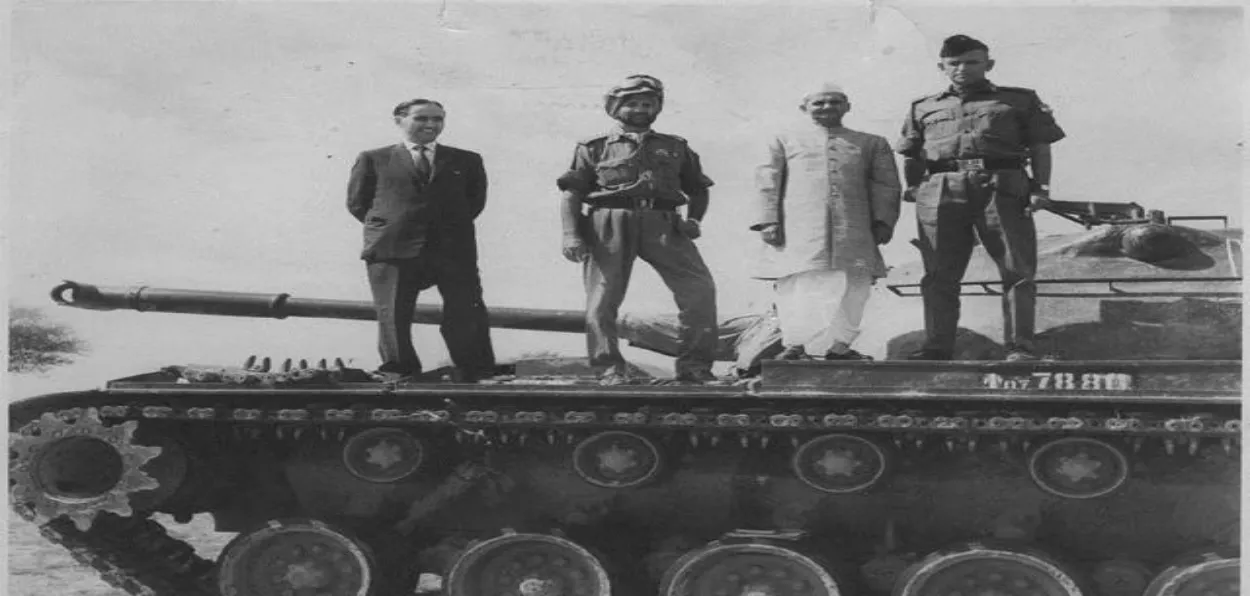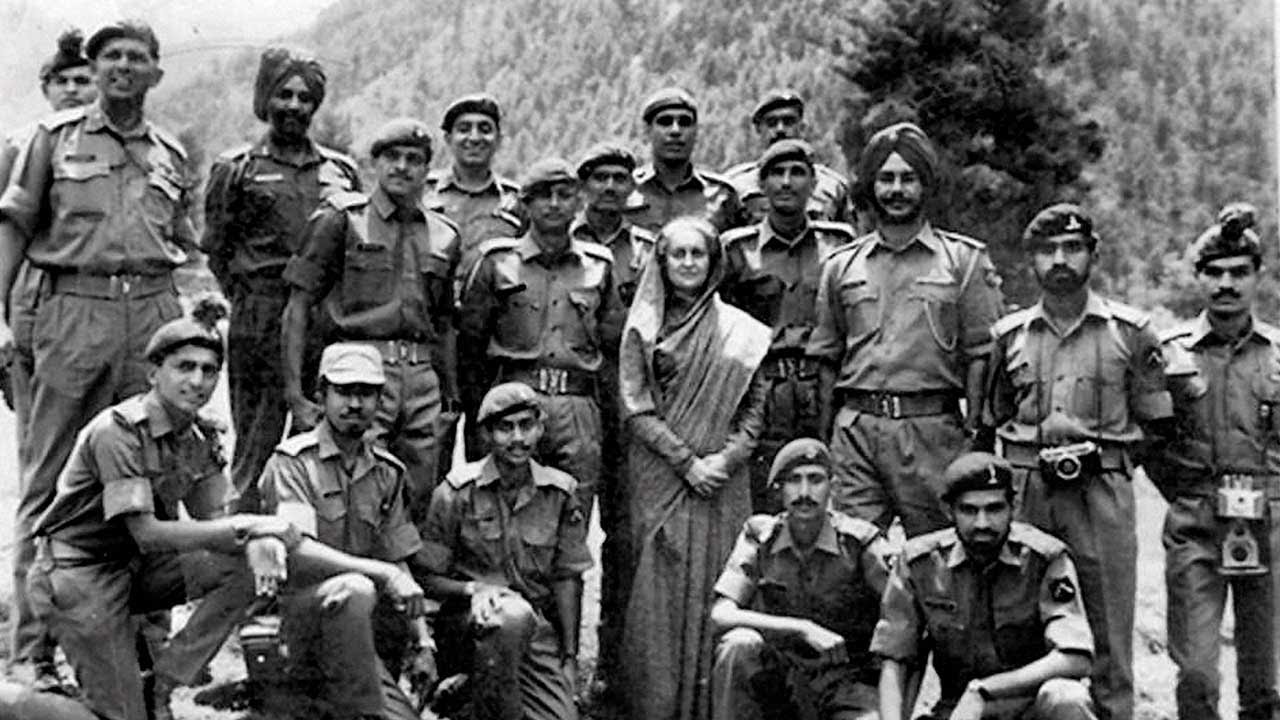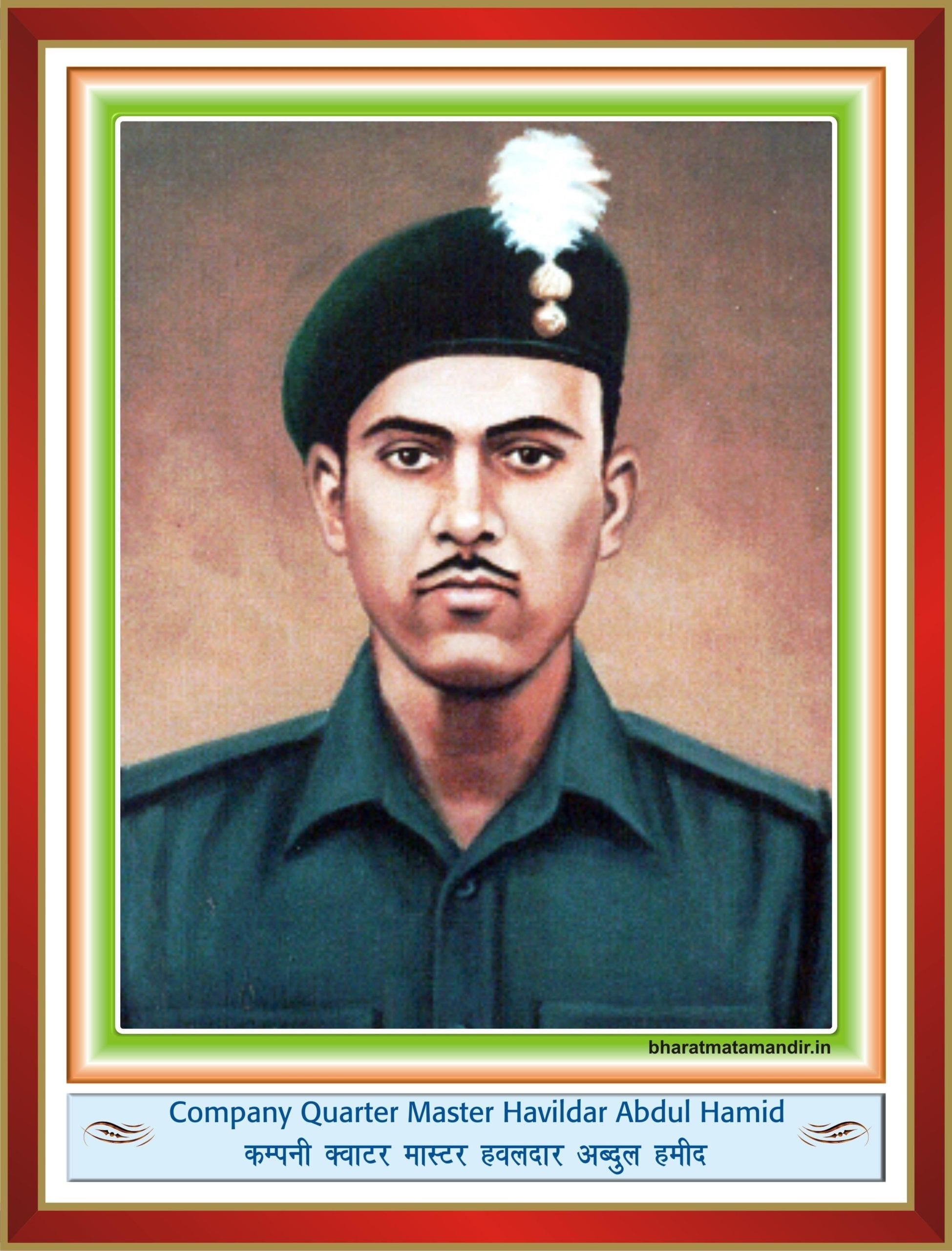
Saquib Salim
In 1965, as India was trying to recover after the Chinese invasion, Jawaharlal Nehru's death came as another setback to the newly independent nation. Nehru’s successor Lal Bahadur Shastri was focused on making India self-reliant in food production. At that time, General Ayub Khan-led Pakistan attacked India.
Pakistan claimed the attack was meant to help their "Muslim brothers in India, especially Kashmir." It sought the support of Muslim countries. Pakistan had no idea of the unity of Indians.
The day of Pakistan's attack, all 36 Muslim Members of Parliament (MPs) released a joint statement stating, “Normally many of us are against any sectional appeal on political issues, but we feel that we must make an exception on this occasion as Pakistan is trying to give a religious colour to the conflict it has provoked.”
In a message to the Muslim nations of the World, these MPs unequivocally said that Pakistan was trying to incite violence inside Kashmir, attacking India without provocation and Indian Muslims were fighting this war against Kashmir.
Jamiat-e-Ulema-i-Hind, the largest body of Islamic scholars, under the Presidentship of Maulana Syed Fakhruddin Ahmed passed a resolution stating, “The Working Committee deprecates both the interference of Pakistan in the internal affairs of Kashmir State which is an integral part of India and the unprovoked recent aggression which was also an attempt to interfere with our territory.”
The resolution further said, “Any aggression or outside interference in the internal affairs of Kashmir by anyone is considered by the Jamiat an encroachment on our territory and sovereignty and to resist it at all cost is the primary and sacred duty of all Indians.”
In a statement aimed at the Arab countries Muslim leaders like Maulana Asad Madni, Mufti Atiqur Rahman, Begum Anis Kidwai, Col. B. H. Zaidi, and others said, “We, therefore, hope that Indian stand on Kashmir shall be appreciated and supported by the Arab Countries. Politicalization of faith and exploitation of religion should in no way be allowed for territorial expansionism. Kashmir, for us, is a matter of ideals and not a political tactic. It is a symbol of secular democracy for all Indians and much more for Indian Muslims.”
Across India, Muslims raised funds for war, came out for blood donations, and offered voluntary military service.

Information and Boradcasting Minister Indira Gandhi with soldiers on the border during the 1965 India-Pakistan war
As action speaks louder than words, Indian Muslims fought against Pakistan on the battlefield. The Pakistani propaganda of portraying the attack on India as "a religious war to save Islam" would not fool Indian Muslims.
In a letter to different Indian embassies, the Ministry of External Affairs shared “a few accounts of acts of bravery and exploits of Indian Muslim soldiers against the recent massive Pakistani aggression on India and the names of the winners of gallantry awards…” This list included Havildar Abdul Hamid (Param Vir Chakra), Lt. Col. Salim Caledb (Maha Vir Chakra), and Major Mohammed Ali. R. Sheikh (Vir Chakra), Ayub Khan (Vir Chakra), Jamaluddin Kidwai, Mushtaq Husain Khan and Safdar Ali.
The International Media reported interesting news in September 1965 about Ayub Khan. He was not the Pakistani President but a Naib Risaldar of the Indian Army. The news reported, “One of the crack Indian tank gunners on the embattled Sialkot sector is a namesake of Pakistani President Ayub Khan….. On September 11, gunner Ayub Khan claims to have knocked out an American-made Chaffe Pakistani tank. He is one of the many Muslim soldiers in the Indian army.”
Naib Risaldar Mohammed Ayub Khan was awarded with Vir Chakra on 9 September, i.e., the second day of the war. He played a decisive role in destroying American-made Pakistani tanks which were the mainstay of the Pakistan Army at the time.
Citation of Ayub for Vir Chakra reads, “On the 9th September 1965, Naib Risaldar Mohammed Ayyub Khan, who was commanding a troop of a Squadron of a Cavalry regiment, was ordered to block the enemy assault on the Suchet Garh positions in Sialkot Sector in Pakistan. This assault threatened to cut off the main line of communication of our force in that Sector. He moved very swiftly and maneuvered his troop so skilfully that the enemy force consisting of one company of infantry and half a dozen tanks got disintegrated and lost four tanks.”
Major Mohammed Ali Raaz Sheikh belonged to a princely family. According to the letter of the Ministry of External Affairs, he was the brother of Nawab of Mangrol, an erstwhile princely state in Gujarat. He laid down his life while serving the nation.
The citation for Vir Chakra reads, “On the 8th September 1965, Major Mohammed Ali Raaz Sheikh, who was in command of a Squadron of an Armoured Brigade in the Sialkot Sector in Pakistan, was ordered to outflank an enemy force from the east of Gadgor to cut it off. Another Squadron of the Regiment, advancing up to Gadgor had contacted a Squadron of enemy armour and infantry in well-prepared and concealed positions. As Major Sheikh advanced about 3000 yards, he also contacted enemy armour which was supported by dug-in recoilless guns. He at once ordered deployment of his Squadron and himself took up position beside the leading troop. A fierce tank battle ensued, in which Major Sheikh himself took a prominent part and destroyed two enemy tanks. He was hit by an enemy shot and was severely wounded. Even so, he kept on engaging the enemy till he was evacuated to a hospital where he succumbed to his injuries.”
Abdul Hamid’s story is now a part of Indian folklore. The man not only destroyed a platoon of tanks but also broke the confidence of the Pakistani Army by showing that even much inferior arms could destroy them.
On 8 September 1965, the Pakistan army invaded the Indian territory at Khem Karan, Punjab. The enemy entered with Patton tanks, and the Indian army was without anti-tank technology at the time. The best, Indians had, were recoilless (RCL) guns mounted on jeeps. An intelligent mind would say that it was a no-match and India stood no chance against the US-made Patton tanks but Hamid thought otherwise.
At 9 am, on 8 September, Hamid spotted a Pakistani tank battalion heading towards his battalion. Sitting in a Jeep mounted with an RCL gun, he thought about his options. Taking camouflage in sugarcane fields, the Jeep remained hidden from the sight of Pakistani tanks. As soon as Hamid felt that the tank moving ahead was within the shooting range, he fired at it. The tank was up in flames. To fire upon a tank with an RCL gun when it is only 30 yards away was an insanely courageous act. Other Pakistanis following the tank, deserted their tanks and fled.
 Effectively, three Patton tanks were defeated, one destroyed and two captured by Hamid. Two hours later, three Patton tanks again tried to intrude on the Indian territory. The story was repeated. Hamid let them come close to his Jeep and then destroyed a tank while the Pakistanis left the other two in haste. By the end of the day, Hamid, with his RCL-mounted Jeep, had destroyed two and captured four Patton tanks.
Effectively, three Patton tanks were defeated, one destroyed and two captured by Hamid. Two hours later, three Patton tanks again tried to intrude on the Indian territory. The story was repeated. Hamid let them come close to his Jeep and then destroyed a tank while the Pakistanis left the other two in haste. By the end of the day, Hamid, with his RCL-mounted Jeep, had destroyed two and captured four Patton tanks.
Hamid kept destroying tanks and on 10 September he was killed while destroying his 8th tank in two days. Effectively the whole battalion of Patton Tanks was defeated. More than 70 tanks were left behind by Pakistan and several were destroyed. This was a decisive blow for Pakistan. Hamid received India’s highest gallantry award Param Vir Chakra.
The Statesman of 22 September 1965 noted, “Lists of gallantry awards should not normally be a subject for comment except in terms of the qualities or performance for which the awards are made; yet in the context of persistent Pakistani attempts to introduce divisive religious passion into the present conflict, it might be instructive for those who still have some patience for Pakistan's fairy tales to have a look at the lists published in New Delhi during the past few days. They will see how India's armed forces, like other sectors of her vast population, refuse to wear any communal label.
Recipients of the recent awards include Muslims, Christians, Parsees, Sikhs, and Hindus. The highest award has gone, posthumously, to Havildar Abdul Hamid. He fought and died in trying to save his country from Pakistani aggression: not for him the nonsense of religious war with which the Pakistan Government has been trying to dupe its people and mislead world opinion.
ALSO READ: Pahalgam terror attack: Indian Muslims' protests unprecedented
The editorial further said, “Both the Indian public generally and the Government in particular have stubbornly refused to accept the theory that religion should divide and not unite. Islam is an integral and important part of the rich complex of religions and cultures that constitutes the reality of Indian life; the distinguished Muslims in high office in this country are as representative of India as anybody else and it was not to impress foreigners that the Indian delegation to the Security Council was led by a Muslim.”
